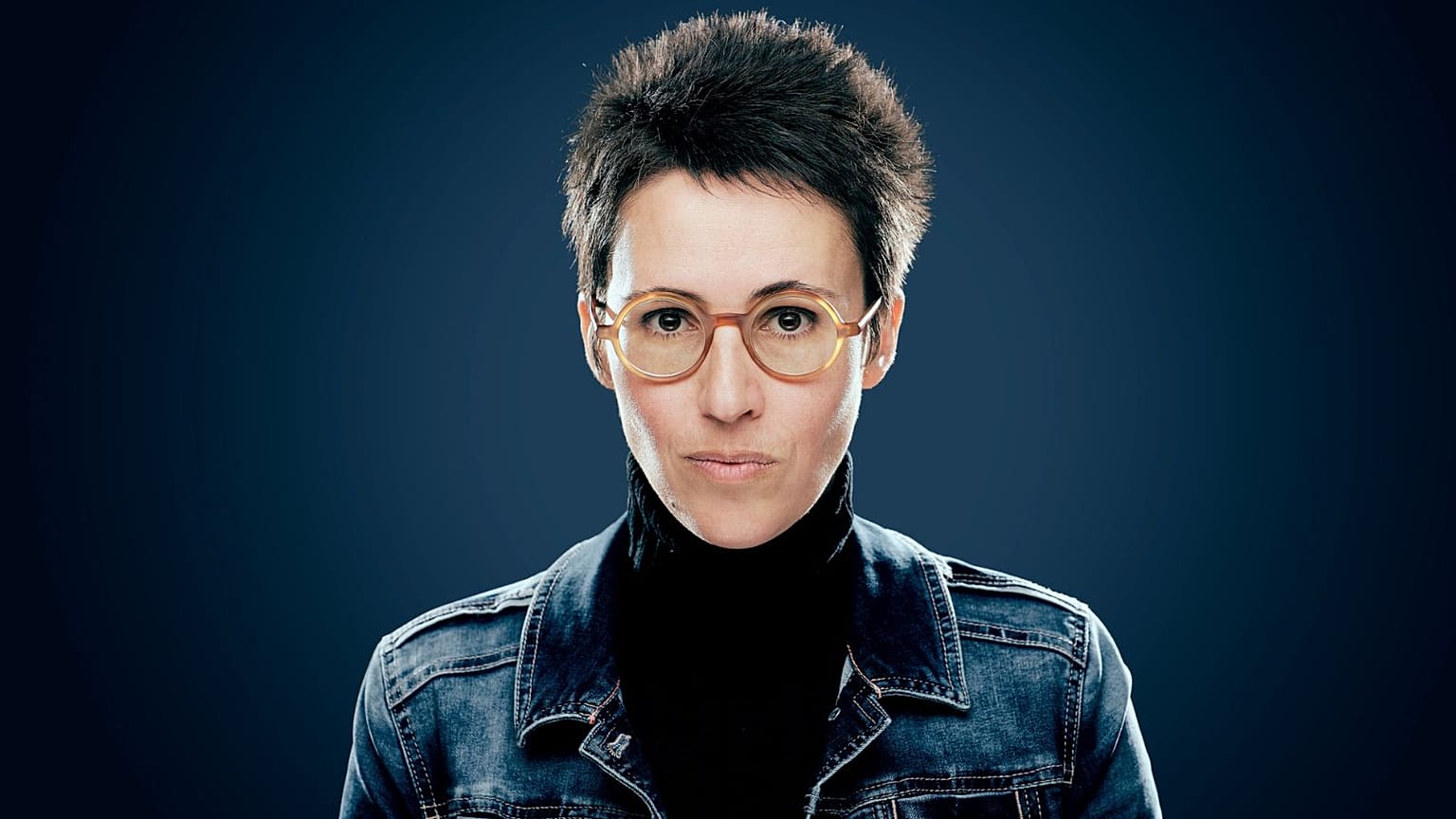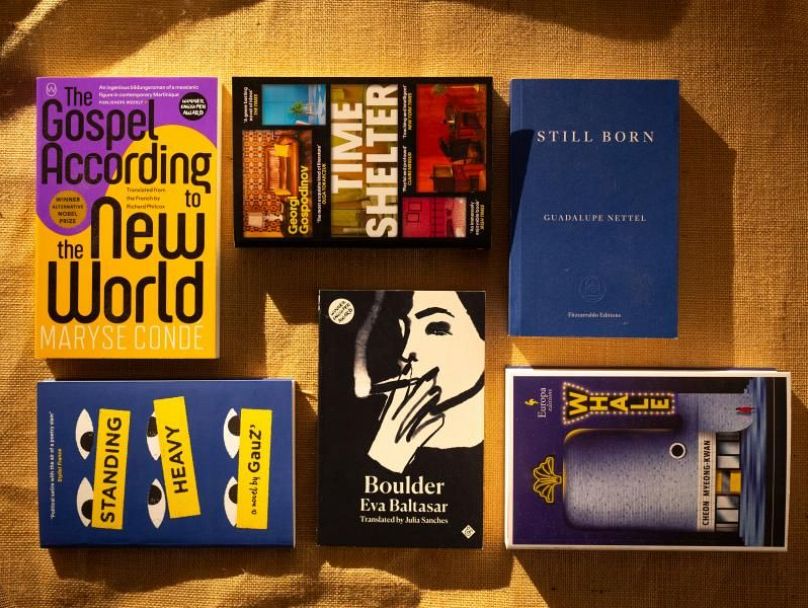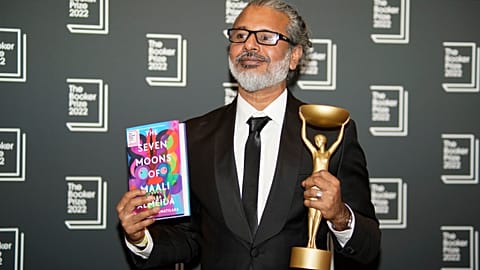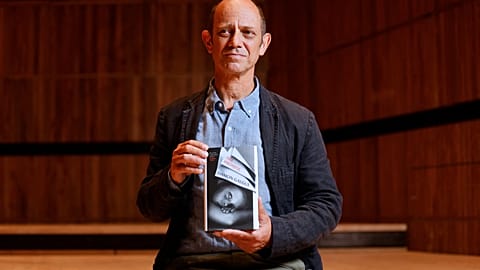Eva Baltasar is a celebrated writer and poet in Spain, but next week could see her profile raised even higher if she wins the International Booker Prize, one of the literary world's most sought after awards.
Eva Baltasar seems almost nonchalant when she talks about her nomination for the International Booker Prize.
Already a well-known writer and poet in Spain, she seems unimpressed that she may be about to walk off with one of the literary world’s most prestigious awards for her novel Boulder.
Baltasar’s second novel in a triptych is one of the finalists for the prize whose winner will be unveiled on May 23.
When we meet she mentions, almost in passing, that the Oscar-winning Spanish director Pedro Almodóvar has said he wants to turn the novel into a film.
So, it is safe to say that Baltasar is no fame junkie and seems more dedicated to her writing.
“Fame does not interest me at all. I know I cannot control the future, so I let it take me. I want to concentrate on my writing and my family. If I win, I win. If not, no worries,” she tells me when we meet in Barcelona.
Love labours lost
The title of her shortlisted novel was inspired by a huge fake climbing boulder in Baltasar’s hometown, about an hour’s drive outside Barcelona.
But the story is far from being a dry, lugubrious rock; instead, it is a sexy, sensual love story between two women.
The novel tells the story of a horny, chain-smoking cook who lives a hermit’s life as she works on a merchant ship off the coast of Chile.
All this changes when she meets – and falls in love with – Samsa, who gives her lover the nickname Boulder.
From the south Atlantic, the couple move to a cramped apartment in Reykjavik, when Samsa gets a job in Iceland. Boulder struggles to adapt to normal life as her lover labours away at a 9 to 5 job.
What strikes the reader is the sensuality of the writing, either when Boulder is handling meat or caressing her lover.
“The thing I most enjoy about my job is handling food while it’s still whole, then some part of it still speaks of its place in the world, its point of origin, the zone of exclusion that all creatures need in order to thrive. Water, earth, lungs. The perfect conditions for silence.
“Food comes to us wrapped in skin and to prepare it you need a knife. If I’ve got one skill in the kitchen it’s carving things up. The rest is hardly an art. Seasoning, tossing things together, applying heat. Your hands end up doing it all on their own.”
Motherhood and me
The slim 116-page volume reaches its climax when Samsa declares that she wants to become a mother as she nears 40.
For Boulder this is exactly what she does not want. And as Samsa prepares her body to give birth, her lover fears there is no room left for her. Samsa gives birth to her daughter Tinna and Boulder feels left out and seeks solace with another woman.
But as she begins to care for her daughter, Boulder finds herself seduced by motherhood.
Baltasar, who wrote the book in her native Catalan but it was translated last year into English, says on a deeper level, Boulder is about motherhood.
“Boulder is an exploration of motherhood. It is about two clear visions of what motherhood can be,” she said.
“For me it is not just something to be seen in one way. It can be seen in many ways. It has many faces.”
The novel echoes Baltasar’s own life. She was a single mother at the age of 24 and looked after her daughter in a very basic flat.
Later, she married and had her second daughter when she was 33. She later divorced her wife and the pair share custody.
She got the idea for the start of the book – life on a boat in Chile – from a real trip she took years ago on a ship off the South American country.
Critics have praised the sensuality of the language in the book.
Baltasar said she owes this to her 15 years working as a poet in which she laboured on rhymes and syllables.
“I learnt my trade when I worked as a poet, I worked on rhythm and images. From these images, I wanted to create this sensual environment. It’s a book in which sensuality is important, not just the sex but the meat or a mass of bread,” she said.
Poetry does not pay, says Baltasar, who got by with a string of jobs from shepherdess to cleaner before she made it as a writer.
Today she lives for her writing.
“I am not on social media. I never read critics of my books. I am just interested in my books,” she said.
“Sometimes I write for between two and six hours. I get up and write from 5am to 7am, then stop to take the dog out and write again from 9am to 1am.”
“It is not work for me. Writing is a pleasure for me.”
The Booker International Prize is for the best work of international fiction translated into English.
The idea of the prize is to allow readers to give a window into the lives of people from different countries and cultures.



















